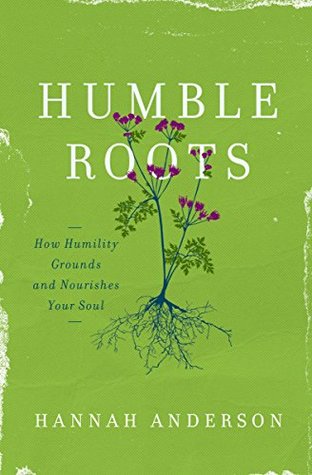More on this book
Community
Kindle Notes & Highlights
Read between
January 12 - April 16, 2018
After all, there are really only two choices in life: You can please God or you can please yourself.
Surprisingly enough, humility teaches us to embrace desire as a means of learning to submit to God. It is precisely through the process of wanting certain things that we also learn to trust God to fulfill those desires or to trust Him when he changes them. It is precisely through the process of learning to plan that we learn to depend on a God who makes our plans happen.
And it is precisely this “slow reveal” that keeps us dependent on Him. It is precisely the process of pursuing our desires and waiting for Him to either establish or alter our plans that humbles us. It is precisely the process of pursuing desire that brings us rest.
Part of submitting to God also means recognizing that even our desires originate from Him.
When you recognize that you love something and are gifted to do it, you must also immediately recognize that you do not love everything, and you are not gifted to do everything. Suddenly you realize your own limitations; desire humbles you. And suddenly you are free from the tyranny of “keeping your options open.”
But here again, humility offers rest. If we are submitted to God’s hand, even our unfulfilled desires can be fruitful because our unfulfilled desires can be the very things God uses to draw us to Himself.
When we are denied the very things our hearts long for, we learn to long for the one thing that will never be denied us, God Himself.
when hope deferred makes our hearts sick, we learn to run to the Great Physician for healing.
You must hold to God’s power; you must also hold that God is good, personally invested in His creation; but you must also hold the fact that evil exists. No matter how you try to juggle it, no human answer is entirely satisfying.
Most of us are more likely to get trapped by consumerism, the daily visits to the stalls of Vanity Fair, than the nights of excess at the Playboy Mansion.
But these vanities cannot deliver the happiness they promise. And in our pursuit of them, we are the ones who end up caught—caught in cycles of debt, spending, and indulgence and all the stress that comes with it.
pride both overestimates our abilities and underestimates God.
The sluggard thinks so highly of his energy and efforts that he’s not willing to waste them.
He’s not willing to expend energy unless he has a guaranteed reward. Because, in his pride, he has foolishly discounted God, he no longer has reason
to believe that his work will amount...
This highlight has been truncated due to consecutive passage length restrictions.
when the brokenness of the world presses in, when we feel the weight of our own helplessness, we succumb to listlessness and despondency. Nothing has purpose. Nothing has meaning. Nothing is worth doing. Why sweep the floor? It will just get dirty again. Why prepare a Sunday school lesson? The children don’t pay attention anyway. Why pray? God probably won’t even hear me.
Without a strong understanding of God’s presence in our brokenness, without the humility to recognize His power, nothing matters. And mundane things like dishwashers and monthly reports and PTA meetings feel especially meaningless. But what if God is present in the brokenness? And what if He isn’t simply present but He’s actively defeating it? What if humility teaches us to believe that God can bring fruit from briers?
“Humility is something infinitely deeper than contrition … it [is] participation in the life of Jesus.”
the God of the universe does not abandon us in our suffering.
It is from these very thorns that He shows how humility overcomes the brokenness.
it is precisely our brokenness that reveals God’s power.
Humility teaches us to find rest in confession. Rest from the need to hide, the need to be perfect. We rest by saying, both to God and others, “I am not enough. I need help.”
And as we submit to His skillful hand, our own hearts and lives—though perhaps for a time locked and dead—will break forth in green.
But this work involves death and resurrection.
We can trust His process because it is through the process of dying and resurrection that we find rest.
In many ways, the act of sleep is itself a spiritual act, an act of humility. To sleep, we must stop our work. To sleep, we must lay our bodies down. To sleep, we must trust another to care for us.
He is teaching us how to trust Him when He finally calls us to Himself. Through our practicing this rest every night, He is teaching us how to rest in Him for all eternity.
“for whoever has entered God’s rest has also rested from his works as God did from his.”17 But this rest only comes by humility. This rest only comes by acknowledging our weakness. This rest only comes by submitting ourselves to Him.
When you come to Him, you will find rest for your soul.


